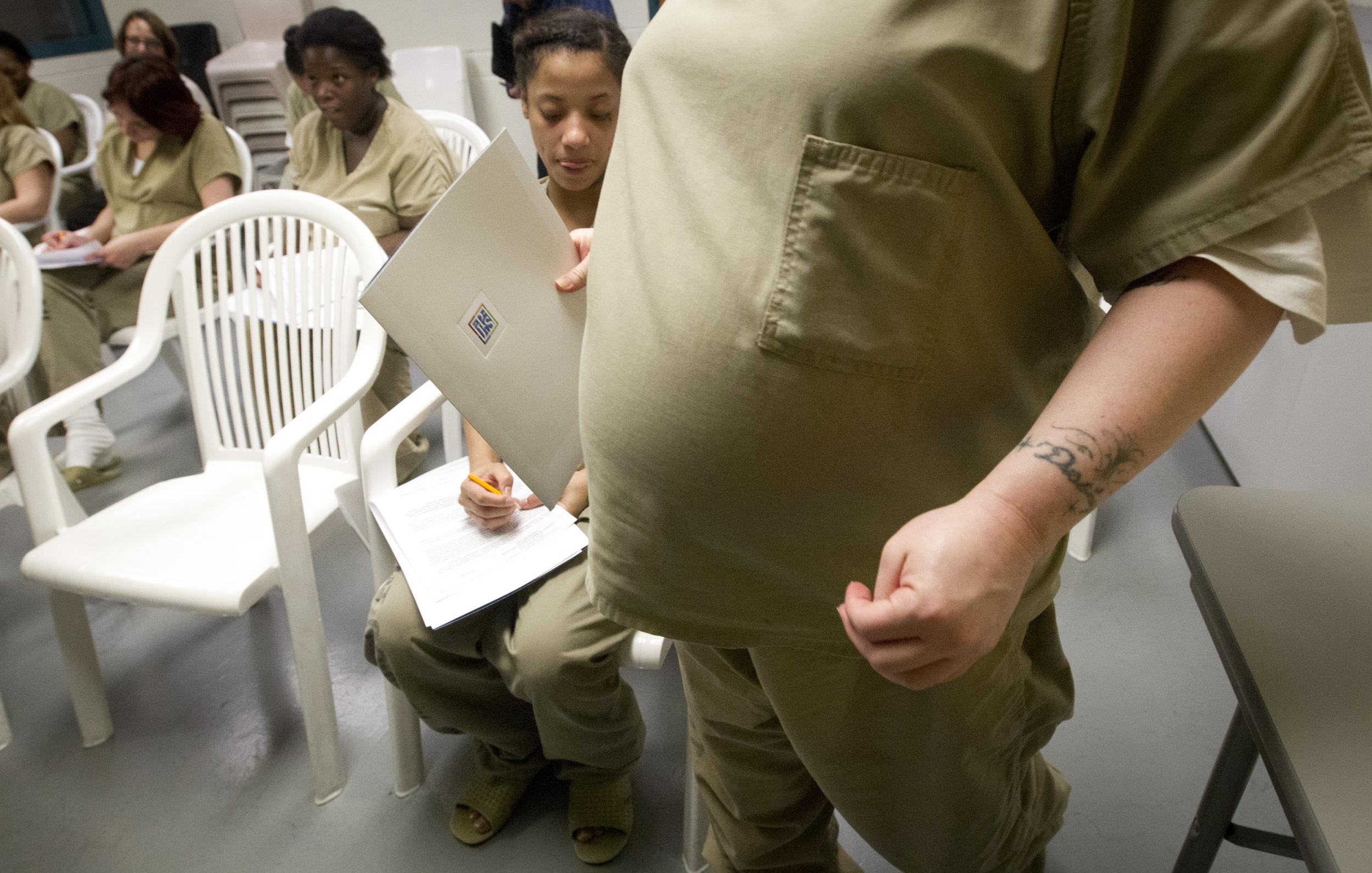New US law bans use of shackles on pregnant federal prisoners
The Federal Bureau of Prisons ceased their use of restraints on pregnant people in 2008, but the First Step Act turns that policy to law

A new bipartisan criminal justice reform bill called the First Step Act has been signed into law by Donald Trump, banning the restraint of pregnant inmates during pregnancy, labour, and postpartum recovery in federal prisons.
With exceptions for the safety of the inmate, those around them, and if the inmate is a flight risk, the new law aims to eliminate the risks that come to both the pregnant person and the foetus from restraint by disallowing their use. It was documented in 2011 that restraints during pregnancy, labour, and delivery have negative impacts on foetal care and delivery.
The new law has been criticised for not creating major systematic change, as the Federal Bureau of Prisons ceased its use of restraints on pregnant people in 2008.
However, the First Step Act takes the policy one step further, making it law, and adding greater precautions. The FBP now must track how many pregnant inmates it has and the outcomes of the pregnancies, as outlined by the new law.
The Sentencing Project reports the majority of pregnant people are not in federal prison, but in state and local penitentiaries, meaning many pregnant prisoners will be unaffected by the new law.
The First Step Act was sponsored by 2020 Democratic presidential nomination hopeful Elizabeth Warren.

Ms Warren said to NBC News, “For too long, our criminal justice system has treated incarcerated women as an afterthought.”
Join our commenting forum
Join thought-provoking conversations, follow other Independent readers and see their replies
Comments
Bookmark popover
Removed from bookmarks